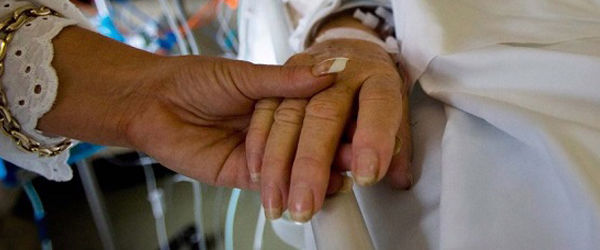We have the first Jesuit Pope, the first Latino Pope, and the first Pope from the Americas. Change is in the air. As a Jesuit, the new pope cares a great deal about Jesuit higher education and Jesuit institutions, such as Loyola Marymount University in Westchester. LMU embraces a distinctive Jesuit-Catholic identity. Its mission includes the education of the whole person, the promotion of justice, and the service of faith. Indeed, the university proclaims an “institutional commitment to Roman Catholicism.” Many wonderful people on campus work tirelessly to make this mission a reality rather than mere rhetoric. Campus Ministry engages students in applying their faith in service to others. The faculty “Mission and Identity” committee works to strengthen Catholic identity throughout the year by sponsoring a wide variety of events. The members of the upper administration at LMU assist our first non-Jesuit, non-Catholic president, David Burcham, in his responsibilities for LMU’s identity. These include a vice-president of Mission and Ministry namely, Jesuit Father Robert Caro and former Jesuit Joseph LaBrie, the Special Assistant to the President with responsibilities for mission related issues. The Jesuit community itself is the very heart of the university’s distinctive mission and identity. All these groups of people are working, in wonderfully diverse ways, to promote the distinctly Catholic mission and identity of Loyola Marymount. The reason why such groups are needed is obvious. Many colleges that once had a vibrant religious identity have, over the years, entirely lost their identity. For example, Whittier College once had a Quaker identity, but now has no religious identity whatsoever. In his book, “The Soul of the American University: From Protestant Establishment to Established Disbelief,” George Marsden tells the story of how numerous Protestant universities became not merely non-sectarian but anti-religious. The trend towards secularization is strong, and religious identity can be entirely lost. Any strong force, unless resisted by an equally strong force, has its way.Some people think that Catholic identity will endure unlike the identity of Protestant schools like Whittier. This is magical thinking. More than a dozen Catholic universities in North America have already formally renounced Catholic identity, including Jesuit and Marymount institutions, such as Marymount Manhattan College, Lynn University formerly Marymount College of Boca Raton, and Loyola College in Quebec which became part of the fully secularized Concordia University. The transformation from having a religious identity to being secular is gradual. It’s rather like going bald. You lose a few hairs here and a few hairs there, and after a few decades you look like a cue ball. For religious universities, the process is a few hires here, a few hires there, and after a few decades, you cannot find a distinctively religious perspective defended by a professor anywhere on campus.The trend towards secularization is strong, and religious identity can be entirely lost. Any strong force, unless resisted by an equally strong force, has its way.Will LMU be an exception to this trend? I certainly hope so, and there are many groups working hard on campus to make LMU exceptional. Indeed, donors, alumni and friends of the university off campus also want to make LMU exceptional. Joining forces with efforts to strengthen the mission of LMU is a new group, Renew LMU: An Alliance to Strengthen LMU’s Catholic Identity. These alumni and donors care deeply about LMU and want it to be the best Catholic university in the west. Now, they have an online community (renewlmu.com) to promote their vision of how to help the university become truly exceptional. But Renew LMU is not limited just to alumni and donors. LMU touches so many people’s lives — parents, siblings, spouses and friends of students, faculty and staff. Indeed, the entire Catholic community in Southern California, and especially in the Archdiocese of Los Angeles, has received so much from Loyola Marymount over the years. The wonderful teachers of LMU — I think here in particular of my dearly departed confessor, Jesuit Father Herbert Ryan — have made indelible impressions on countless people. Every Catholic should care deeply about a Catholic LMU, and desire for it to remain distinctively Catholic, rather than transform gradually into just another private university. Although I may not always agree with the positions of LMU’s mission and identity committee, the mission-related upper level administrators, or Renew LMU, I always agree that a vibrant conversation about Catholic identity at LMU is worth having.A new springtime is coming. We have a new pope, we have a (relatively) new archbishop, and now we have Renew LMU, a new community of alumni, friends, donors and concerned Catholics who aim to strengthen Loyola Marymount University’s Catholic identity. Dr. Christopher Kaczor is Acting Chair and Professor of Philosophy at Loyola Marymount University in Los Angeles. His works include “How to Stay Catholic in College” (Catholic Answers, 2007) and “The Seven Big Myths About the Catholic Church: Distinguishing Fact from Fiction about Catholicism” (Ignatius Press, 2012).

